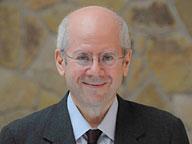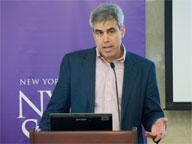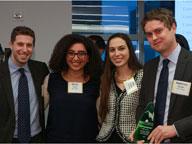Faculty News
—
Dean Peter Henry shares economic lessons learned growing up in Jamaica, from his book, "Turnaround"
—

Excerpt from Big Think -- "But as I encountered economics for the first time many years later and brought together Miss Mama and, as it were, economic science, it struck me that there was really an opportunity to think about how do you actually help people like Miss Mama help themselves. So my grandmother was able to provide a certain kind of assistance which was feeding her for that day. But, of course, the issue is how do you help people like Miss Mama become more productive so they can feed themselves?"
Faculty News
—

Excerpt from Big Think -- "But as I encountered economics for the first time many years later and brought together Miss Mama and, as it were, economic science, it struck me that there was really an opportunity to think about how do you actually help people like Miss Mama help themselves. So my grandmother was able to provide a certain kind of assistance which was feeding her for that day. But, of course, the issue is how do you help people like Miss Mama become more productive so they can feed themselves?"




















